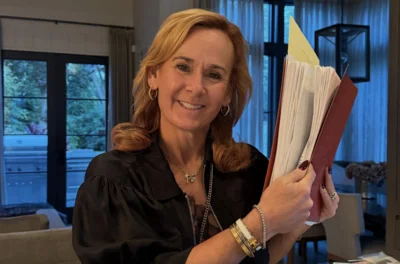State Senator Seth Lewis | Illinois General Assembly
State Senator Seth Lewis | Illinois General Assembly
The Illinois Senate and House concluded their legislative session in the early hours of June 1, with lawmakers returning to their districts for several months. During this period, legislators plan to engage with constituents and community groups.
A total of 432 bills were passed by both chambers, including the budget for Fiscal Year 2026, which will commence on July 1, 2025. The budget was approved just before the midnight deadline on May 31 and totals $55.2 billion. This represents a $2 billion increase over the current year's spending plan.
Governor Pritzker's tenure has seen state spending rise by $15 billion since he took office six years ago. Critics argue that this rapid increase in spending is unprecedented in Illinois history. The new budget also introduces approximately $1 billion in new taxes, following a similar tax hike last year.
Concerns have been raised about the impact of the budget on the intellectually and developmentally disabled (IDD) community. Although state workers received an hourly wage increase, there is a significant reduction in service hours available to IDD community members.
Efforts to reform public transit governance and funding structure stalled during this session. A proposal heavily favoring Chicago and Cook County faced opposition due to concerns about equitable representation and financial responsibility across regions. A proposed statewide delivery tax further fueled opposition from suburban leaders.
Senate Republicans issued a statement criticizing the proposed legislation: "For more than 18 months, Senate Republicans have engaged in good-faith negotiations... But today, all of that effort was undercut by a last-minute amendment that takes us in the wrong direction."
Several high-profile bills did not advance before adjournment, including those related to homeschooling regulations, assisted suicide legalization, four-year degrees at community colleges, banning mobile phone use in classrooms, and funding for relocating the Chicago Bears.
ComEd has announced a summer energy cost increase of approximately 10%. To mitigate costs, ComEd suggests measures such as shifting heavy-duty chores to off-peak hours and sealing drafts to reduce cooling expenses.
Senator Seth Lewis co-sponsored legislation aimed at improving energy reliability but noted that these bills were not addressed before adjournment: "Unfortunately, the majority party chose not to call our bills prior to adjournment."
Residents can look forward to various events organized by Senator Lewis throughout summer and fall within his district. These include open houses at legislative offices and health fairs designed for seniors.






 Alerts Sign-up
Alerts Sign-up